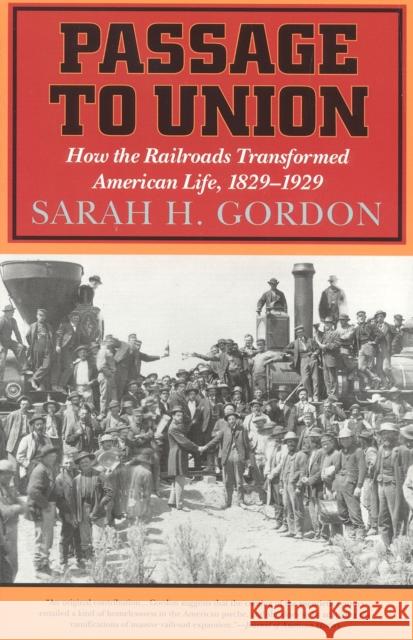Passage to Union: How the Railroads Transformed American Life, 1829-1929 » książka
Passage to Union: How the Railroads Transformed American Life, 1829-1929
ISBN-13: 9781566632188 / Angielski / Miękka / 1998 / 416 str.
Exploring the social, economic, and legal impact of the growth of the railroads, Sarah Gordon has written a richly informed narrative history of an American icon with surprising conclusions. Where the railroads and their entrepreneurs are ordinarily celebrated for drawing together the vast geographical reaches of the union, Ms. Gordon finds that this accomplishment was achieved at high cost. Conflicts of interest at local, state, and regional levels characterized railroad growth at every stage. Despite the stated aims of government and the railroad corporations to promote settlement and commerce, Ms. Gordon explains, the states lost control and lost the economic benefits of the roads that ran through them. Smaller towns withered as people and money flowed to larger cities. By 1900 the union that had emerged reflected the worst fears of railroad critics. The South and West had been settled, but wealth had become so concentrated in cities that rural life had lost its attraction. Drawing from a wide variety of sources, including literature, diaries, and memoirs, Sarah Gordon has constructed an absorbing story of apparent triumph and real loss."











